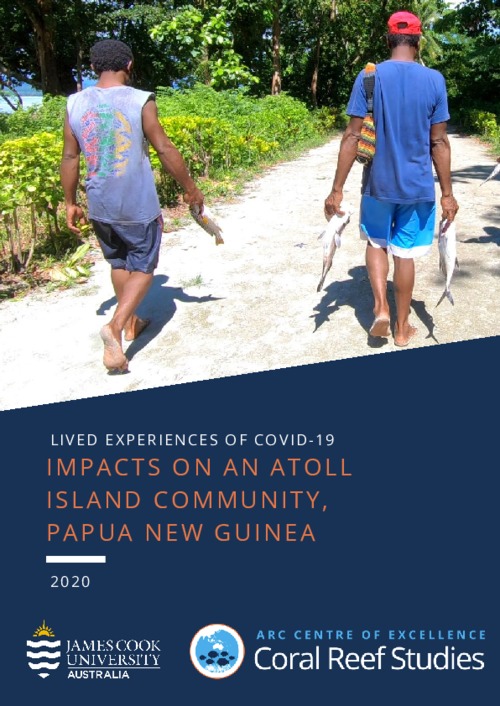Lived experiences of Covid-19: impacts on an atoll island community, Papua New Guinea

This report details the findings from in-depth interviews with community members in an atoll island community in Manus Province, about their experiences during and after the PNG state of emergency. The interviews were conducted by mobile phone in late July 2020 and early August 2020. When the state of emergency began, leaders closed the weekly island markets to stop large gatherings of people. This closure quickly started to cause food shortages, and people stopped following the rules and returned to the markets. This disrupted food access so severely, that markets were quickly reopened. The community’s ability to access mainland markets was greatly disrupted by social distancing rules that halved the number of people able to travel by boat to the mainland. Customer numbers in markets and demand for fish declined dramatically. These changes impacted islander’s income and ability to access store-bought goods and foods. Transport disruptions and social distancing rules likewise caused difficulties accessing financial services (e.g. ATMs) and purchasing petrol necessary for both transport and fishing livelihoods. On the island itself, weekly markets were closed at the beginning of the state of emergency. Due to a lack of cash circulating in the community, markets increasingly reverted to traditional barter systems. These findings suggest that unintended flow-on effects of social distancing rules and their implementation severely impacted livelihoods and food and nutrition security on the island. Based on these findings, we highlight key leverage points for supporting island communities through further and continuing disruptions from the Covid-19 pandemic: recognise distinct challenges that islands face if they become isolated, ensure that support reaches islands in a timely manner, ensure clear communication about future rules, and acknowledge trade-offs between social distancing with livelihoods, food and nutrition security and wellbeing.
Permalink
Date Available
Type
Countries
Copyright
CC-BY-NC-ND-4.0
Language